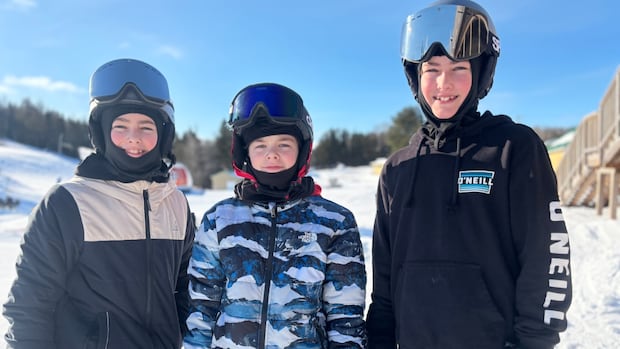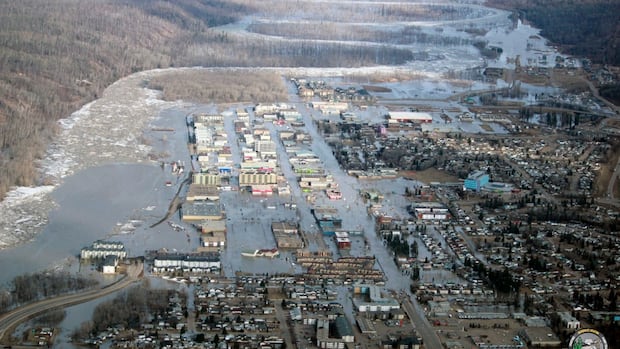As P.E.I.'s provincial ski park begins another season, those hitting the slopes say they're not taking snow on the slopes for granted, especially with wintry days becoming more rare.
Mark Arendz Provincial Ski Park in Brookvale opened Friday, a week earlier than expected thanks in part to last weekend's influx of fresh snow.
"Normally we don't get out before Christmas, so this is a bonus that we're open in December," said Boyd MacQuarrie of Bonshaw, who's been downhill skiing for about 40 years.
"Just glad to be here on a bright, sunny day."
But at the back of some skiers' minds as they head down the slopes is the reality that wintry days like this are in shorter supply than they used to be.
P.E.I.'s provincial ski park at Brookvale opened Friday, more than a week earlier than last year. As CBC's Steve Bruce found out, those on the slopes aren't taking the snowy days for granted, with shorter winters becoming the norm as the climate changes.A study recently released by the U.S.-based climate science organization Climate Central found that P.E.I. has, on average, seen seven more days of above-freezing temperatures each winter due to climate change over the past 10 years.
The study compared observed temperatures in winter months (December to February) to a theoretical world where carbon dioxide pollution had not been released into the atmosphere and caused climate change.
 Erin Curley, operations lead at Mark Arendz Provincial Ski Park, says the hill is weathering the effects of climate change for now. (Steve Bruce/CBC)
Erin Curley, operations lead at Mark Arendz Provincial Ski Park, says the hill is weathering the effects of climate change for now. (Steve Bruce/CBC)Erin Curley, the operations manager at Mark Arendz park, said the staff at Brookvale are adapting to the conditions they face.
She said the hill has managed to stay open somewhere between 55 and 77 days every season for the past six years.
"We're just going to do everything we can to ensure that we do get open each year and maintain as long a season as we can," Curley said. "As much as we might be thinking about the future a little bit, at the same time we're just trying right now to be open when we can."
Still, some folks on the slopes Friday said it's hard not to worry about the future.
James Ennis of Wheatley River has studied climate change's effects on agriculture. He's also an avid skier, and is concerned about what Brookvale — and the planet as a whole — might look like for the generations to come.
 James Ennis of Wheatley River worries what the future will look like for skiing — and the planet — in 20 or 30 years' time. (Steve Bruce/CBC)
James Ennis of Wheatley River worries what the future will look like for skiing — and the planet — in 20 or 30 years' time. (Steve Bruce/CBC)"Everything's coming out earlier in the spring and the falls are getting longer and the winters shorter. It's impacting wildlife, vegetation, agriculture," Ennis said.
"I'm hoping [to ski] for a lot more years. But it may not [start] Dec. 27, it might be Jan. 27."
Many skiers and snowboarders who talked to CBC News on Friday were just happy to enjoy the conditions while they had them — the forecast calls for rain and milder temperatures early next week.
"In like 30, 40 years, if we're not using electric, solar, it could get bad. Snow could melt, and global warming can change it a lot," said young skier Hudson Harris.
"My [older] relatives are always like, 'We had such good snow back then.' We haven't had too many good winters recently.
"I want to do this 'til the day I die. I love skiing."











